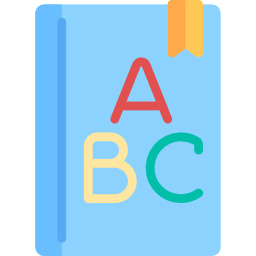
EVEN NEWBORNS BENEFIT FROM BOOKS
You may think you’re off the hook with books until your baby is at least vertical, but not so. Even newborns benefit from the experience of hearing stories (and they can’t complain about your taste in books). So take advantage. Here’s how:
Read out loud, every day. Any book. You can read anything to a newborn: a cookbook, a dystopian novel, a parenting manual. The content doesn’t matter. What does matter is the sound of your voice, the cadence of the text and the words themselves. Research has shown that the number of words an infant is exposed to has a direct impact on language development and literacy. But here’s the catch: The language has to be live, in person and directed at the child. Turning on a television, or even an audiobook, doesn’t count. Sure, it’s good to get started reading aloud the children’s books that will be part of your child’s library. But don’t feel limited. Just be sure to enjoy yourself.
Use your senses. Babies who are read to are learning that reading is fun and can involve all the senses: the feel of the pages, the smell of the glue (don’t go crazy), the visuals of the illustrations, the sound of the parent’s voice. Try it: Texturized books are especially good for your child’s tactile experience.
Mind your audience. Make eye contact, but don’t look for a particular reaction. It may seem like babies are not listening, but they are absorbing the experience. And the patterns, routines and attentive habits that are set now will last a lifetime.
Get your baby talking. Babies may start making sounds in response to your reading. This is why many books for this age contain nonsense words or animal sounds — they’re easier to mimic. Try it: If your child makes a noise, respond. It may make no sense to you, but it’s communication. There’s a straight line from this moment to your first parent-child book club.
